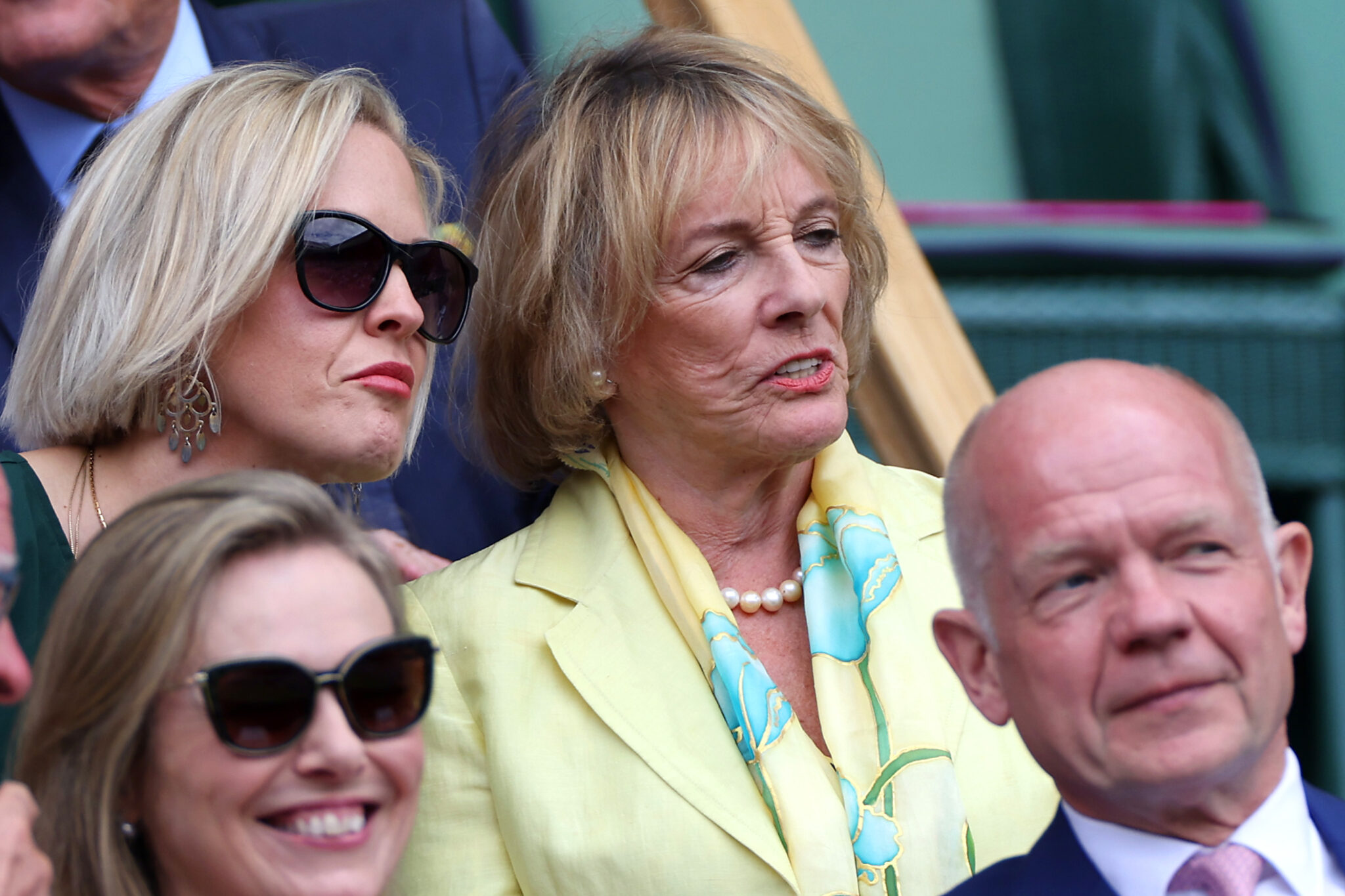Assisted suicide campaigner Dame Esther Rantzen today received a rebuke from the leader of the Catholic Church in England and Wales for suggesting that he had no right to publicly oppose a change in the law.
Dame Esther, a former television presenter who is suffering from terminal lung cancer, extracted a promise from Prime Minister Sir Keir Starmer for parliamentary time to be given to a Bill to allow medics to help patients to kill themselves.
The 84-year-old objected bitterly when Cardinal Vincent Nichols, the Archbishop of Westminster and president of the Catholic Bishops’ Conference of England and Wales, soon afterwards issued a pastoral letter urging the faithful to write to their MPs and ask them to vote against<mark style="background-color:rgba(0, 0, 0, 0)" class="has-inline-color has-vivid-cyan-blue-color"> <a href="https://bills.parliament.uk/bills/3774/publications">the Terminally Ill (End of Life) Bill </a></mark>at Second Reading on November 29.
She told the <em>Evening Standard</em> that she was “deeply disappointed” by his intervention, adding: “The archbishop himself is guided by the faith he has personally chosen. But surely that does not mean he should impose his faith on those who do not share it.”
Dame Esther later suggested to BBC Radio Solent that the Catholic Church, as a registered charity, was acting beyond its remit by involving itself in politics.
“Isn’t that lobbying?” she said. “I think that’s a bit extreme, even if you believe it.”
At a press conference in Leeds today, Cardinal Nichols strongly asserted the right of Catholics to make their voices heard in the debate and to write to their elected representatives to urge them to oppose the Bill.
Cardinal Nichols said the Bill, introduced by Labour backbencher MP Kim Leadbeater, insisted that people of faith had the same right to express their opinions as anyone else.
He said: “The whole point of a democracy is that we share views and I think we know that there are many voices of strong conviction in our society and all of them have a right to be heard.”
“And that is absolutely true of the convictions that are based and drawn from faith and belief in God.
“To suggest that somehow belief in God is an excluder from public debate is actually abhorrent."
Cardinal Nichols added: “Nobody should be excluded. If those whose views are formed in a tradition that has shaped our civilisation for over 2,000 years are suddenly cancelled, really it’s not acceptable.”
The remarks of the cardinal came at the end of the November meeting of the bishops at Hinsley Hall in Leeds <a href="https://catholicherald.co.uk/be-compassionate-assisted-suicide-statement-of-bishops-of-england-wales-and-scotland-in-full/?swcfpc=1"><mark style="background-color:rgba(0, 0, 0, 0)" class="has-inline-color has-vivid-cyan-blue-color">at which they agreed a joint statement about the push for assisted suicide with the bishops of Scotland.</mark></a>
The joint statement said that the time given for Parliament to consider the Bill “is woefully inadequate”.
“Although the Bill indicates safeguards will be in place, the experience of other countries where assisted suicide has been introduced shows that such promised safeguards are soon forgotten,” it says.
“In Belgium, the Netherlands, Canada, and parts of the USA, the criteria for assisted suicide have been expanded significantly, in law or in practice, often to include people with mental illness and others who have no terminal diagnosis.”
The bishops concluded their statement with by repeating their call to Catholics “and those who share our belief in the dignity and value of every human life, to contact their local MP to make their opposition known, asking him or her to oppose or not support the Bill”.
At the press conference, Auxiliary Bishop John Sherrington of Westminster, the lead bishop for life issues, said of “great concern” to the Church was the proposed denial of the exercise of conscience by medical professionals who oppose assisted suicide.
Under Section 4 of the Bill, it will be legal for a medical practitioner to raise the option of doctor-assisted suicide with a patient – but it will be illegal for the medic to refuse an assisted suicide if a patient demands it.
Instead, the doctor will be compelled to refer the patient to a practitioner who will provide and help them to administer a lethal cocktail to end their lives.
“Many medics will not be prepared to do that,” said Bishop Sherrington, adding that the Bill would also undermine the ethos of Catholic hospices by granting pro-euthanasia doctors the right to approach dying patients with the offer of an assisted death on their premises.
The Bill seeks to remove the legal prohibitions against assisted suicide which are punishable by up to 14 years in prison under the 1961 Suicide Act, though prosecutions and jail sentences are extremely rare.
To be eligible, a person must be over 18, resident in England and Wales.
They must be registered with a GP for at least 12 months, and have the mental capacity to make a choice about the end of their life.
The person must be terminally ill and expected to die within six months and be free from coercion or pressure.
Two doctors and a High Court judge must approve their application and there must be a “cooling off” period of up to 21 days from the first assessments unless the patient is expected to die imminently.
Ms Leadbeater said: “I believe this Bill not only offers protections to people nearing the end of their lives that they don’t have at present, but also provides for the strictest safeguards anywhere in the world.”
Opponents of assisted suicide and euthanasia have pointed out repeatedly, however, that in every country which has introduced such practices the initial safeguards have been quickly eroded or removed.
Cardinal Nichols, Archbishop Mark O’Toole of Cardiff and Menevia and Bishops Mark Davies of Shrewsbury, Patrick McKinney of Nottingham, Marcus Stock of Leeds, Paul Swarbrick of Lancaster and Bishop Peter Collins of East Anglia have all written pastoral letters encouraging Catholics of their dioceses to take action.
In his pastoral letter, Bishop Philip Egan of Portsmouth said that the ideology behind assisted suicide was comparable to Nazism.
The failure of Catholics to act, he said, would be to “capitulate to the very ideology Britain fought against in the Second World War”.
“If we yield to this and permit killing, we will cross a line from which there is no return,” he said. “Like using nuclear weapons, once deployed, it’s too late - there’s only escalation … It would inexorably lead to euthanasia, the right to make another person die.”
The vote on assisted suicide will be the first since 2015 when a Bill was rejected by 330 to 118. On that occasion Sir Keir voted in favour.
Dame Esther welcomed the publication of the Bill this week but complained that it did not go far enough. She acknowledged however it was the first step needed by euthanasia campaigners “to get reform through”.
A group of more than 50 MPs have also said that the proposed safeguards are too tight and are pushing for broader access to assisted suicide, arguing that that it should be available to anyone who is suffering incurably.
<em>(Photo by Clive Brunskill/Getty Images)</em>



